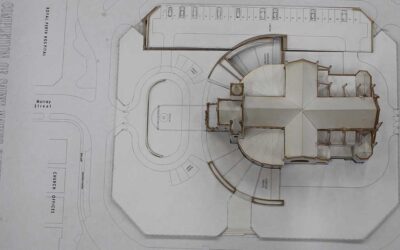Elevating Archives’ Impact with Advocacy

Margot Note
Archivists can employ strategies to enhance their impact, advocate for their roles, and become integral contributors to the organizational landscape.
Archivists are pivotal in preserving an institution’s history and shaping its identity. Archivists should carry out their responsibilities in ways that contribute to their institution’s mission.
The Power of Numbers
The bottom line drives institutions. To advocate for their work, archivists must speak the language of business: numbers. Archivists must understand that additional expenditure decisions are closely tied to expected benefits and should demonstrate tangible outcomes and contributions to the institution’s objectives. Requests that align with budget constraints stand a higher chance of approval, reinforcing that results become the most significant currency in institutional decision-making.
Archivists should also prioritize the communication of their achievements in a clear, accessible manner. Utilizing data visualization tools and creating comprehensive reports can help convey the impact of their work. By presenting statistical evidence and success stories, archivists can make a compelling case for the value they bring to the institution. Additionally, fostering relationships with stakeholders and decision-makers is crucial. Building a network within the organization ensures archivists have allies who understand and support their initiatives. A strategic and results-oriented approach and influential communication position archivists to secure resources and garner recognition for their vital role in achieving the institution’s goals.
Budget-Neutral Requests
Archivists often need to make requests that may impact the budget. Framing these requests budget-neutrally increases the likelihood of a positive response. Being mindful of financial constraints and proposing solutions that do not impose additional financial burdens showcase the archivist’s understanding of the institution’s economic realities. Additionally, leveraging precedents can be a powerful tool in navigating budget-related discussions, providing a strategic advantage to archivists.
By referencing successful precedents, archivists can demonstrate the feasibility and benefits of their proposals, making a compelling case for budget allocation. Moreover, fostering open communication channels with decision-makers allows archivists to convey the value of their work and its positive impact on the institution. Archivists should align requests with the overarching goals and priorities of the organization. This strategic alliance enhances the chances of budget approval. It reinforces the archivist’s role as a valuable contributor to the institution’s mission. Approaching budget-related discussions with fiscal responsibility, strategic thinking, and effective communication can enhance the archivist’s ability to secure the necessary resources for preserving and managing valuable collections.
Crafting an Advocacy Agenda
When formulating an effective advocacy agenda, understanding the institution’s mission, status, and vision is crucial for archivists. Advocating archivists emphasize aligning priorities with the organization’s long-term vision. By assessing the department’s circumstances, archivists can identify short-term goals and long-term aspirations contributing to the institutional mission. This forward-thinking approach ensures that the advocacy agenda extends beyond immediate concerns, fostering a strategic and holistic perspective.
Astute Observers
Archivists should become astute observers of the larger institutional culture. Understanding an organization’s history, evolution, and milestones positions archivists as articulate advocates of the archival mission. By incorporating historical narratives into the workspace, archivists contribute to developing organizational identity and instilling a sense of employee pride. This practice reinforces an understanding of organizational values and achievements, grounding colleagues with a deeper sense of purpose.
Archivists foster a culture of transparency within institutions. As custodians of historical records, archivists are crucial in providing access to information that promotes accountability and informed decision-making. Their ability to organize and preserve records ensures that a comprehensive and authentic historical perspective is available for current and future generations. By facilitating transparency, archivists build trust between an organization and its stakeholders, fostering an environment where openness and integrity are valued. This proactive approach aligns with professional archival principles. It catalyzes a more resilient and ethically grounded institutional culture.
The Journey Towards Impact
By aligning with results-driven advocacy, budget-conscious requests, comprehensive agendas, and embracing historical perspectives, archivists can contribute to the institution’s success. This approach positions archivists as integral players in preserving the past and shaping the future of their organizations. As archivists navigate the intricate landscape of institutional dynamics, they become champions of history, advocates of identity, and contributors to the overarching mission of their institutions.

Margot Note
To learn more, please join us for a free webinar, Organizational Culture and Internal Advocacy, Wednesday, March 13, 2024 at 11 a.m. Pacific, 2 p.m. Eastern. (Can’t make it? Register anyway and we will send you a link to the recording and slides afterwards). Register now or call 604-278-6717.
Never miss another post. Subscribe today!
Similar Posts
Cultivating a Community of Archival Practice: A Client’s Success Story
“We need a dynamic system that supports a consistent approach to managing the Perth diocesan collections across Western Australia…ArchivEra is already providing this with Catholic dioceses in Bendigo, Hobart, and Ballarat.”
Honoring Cultural Protocols in Archival Practice
Learn how archives can honor Indigenous cultural protocols, reframe stewardship, and move toward ethical, reciprocal, and community-driven practices.
Centering Sovereignty in Archives: Decolonial Approaches to Indigenous Knowledge
Margot Note explores how centering sovereignty in archives supports Indigenous rights, decolonial practice, justice, and cultural resurgence.
The Ethical Use of Born-Digital Materials in Archives
Born-digital records introduce complex ethical dilemmas involving consent, privacy, preservation, and access. Archivists must rethink ethical frameworks to navigate digital records’ dynamic, fragmented, and often personal nature.




Leave a Comment
Comments are reviewed and must adhere to our comments policy.
0 Comments